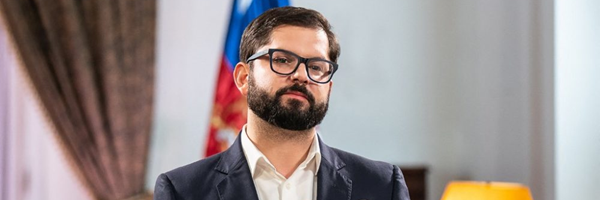Latin American Right Unites Against The Bolivarian Revolution

People’s Dispatch, July 29, 2024 —
Right wing political leaders from across the region have issued strong attacks against the ongoing electoral process. And professed their support to the far-right opposition.
For the right-wing across Latin America and the Caribbean, the Venezuelan elections appear to be an existential threat. Ahead of the July 28 presidential elections, numerous political figures, former elected officials, and sitting authorities from conservative sectors of Latin American politics have united to condemn the ongoing electoral process underway in Venezuela and to manifest their full support and backing to the far-right in the country represented on the ballot by Edmundo González and politically by the figure of Maria Corina Machado, who is not eligible to run.
The first wave of attacks were in response to alleged political deportations of several political figures such as ex-vice president of Colombia Martha Lucía Ramírez, ex-president of Mexico Vicente Fox, ex-president of Bolivia Jorge Tuto Ramírez, who are part of the Miami-based right-wing think tank “Idea Grupo” who had attempted to travel to Venezuela to act as “electoral observers”. After they were denied entry to the country for not having proper accreditation from the country’s electoral authorities, they launched a campaign on social media alleging that they were arbitrarily detained and deported by the “Maduro regime”.
Fox held a press conference on Friday from Panama and stated, “I vomit that a dictator imposes a route for us to follow. It should be evident that Maduro is a dictator that dominates and imposes on airlines, flights, people, and more, I absolutely reject this dictator.”
In a statement released by IDEA Group, the political intentions of their trip are made crystal clear: “The determination of the former presidents that make up the IDEA Group, in particular, of the accompanying mission appointed by them at the request of the presidential candidate Gonzalez Urrutia and Machado, is to maintain this accompaniment from our countries and sustain the struggle for the return of democracy in Cuba, Nicaragua, Venezuela and Bolivia; this, to prevent other countries in the region from knowing the risk of suffering that long night that for 24 years has darkened the illusions and hopes of millions of Venezuelans.”
As they say in their statement, their invitation was not from the National Electoral Council (CNE) which is the only body with the authority to invite electoral observers, but from political candidates and parties. According to Venezuelan electoral law, this type of invitation is not allowed. The observers must be recognized by the body responsible for the elections, the CNE. Former Venezuelan Vice President Elias Jaua told Brasil de Fato, “There is undoubtedly an attempt to put on a show by parliamentarians from various countries around the world. In no country can anyone who has not been invited to an institutional electoral process impose themselves by force.”
In an event on Saturday July 27, Venezuelan President Nicolás Maduro rejected the statements and said, “In Venezuela there are laws, we are not a gringo protectorate. I apologize to the nations that were offended by us impeding the entry of certain people who are not owed explanations.”
The far-right leader María Corina Machado and right-hand of González has been meanwhile, drumming up support from other right-wing leaders in the region. In a post on X, Machado wrote about a phone call she had with the far-right libertarian president of Argentina Javier Milei, stating, “I thanked [Milei] for the support and commitment of his government and the political team of the Foreign Ministry during these difficult months for Venezuelans and for our people in the campaign commands. I reiterated my confidence in the unwavering libertarian spirit of Venezuelans and our conviction that this 28J will be a historic civic gesture.”
The alliance of Machado with the Argentine president who has implemented a political project that has aggressively attacked the people’s rights and well being, also signals the type of policies that Machado would seek to implement such as slashing the state budget, social programs, and hard fought for rights. However, Machado’s post also suggests something more sinister, which is the political support given to Machado by Argentina’s Foreign Ministry.
